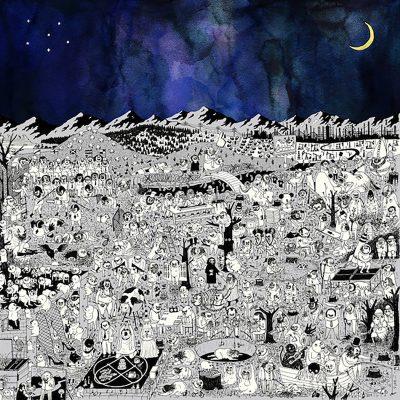
If you’re having a rough day and need a good cry (or maybe a laugh), look no further than Father John Misty’s third studio album, “Pure Comedy.”
The album offers a depressing musical journey from the mind of Josh Tillman, who goes by the stage name Father John Misty. Tillman grew up in a fervently Evangelical household in Rockville, Maryland. His family’s religious views left Father John devoid of the normal cultural influences of any young American kid. It was not until the age of 17 that his parents allowed him to venture out into the world of secular music.
Tillman’s interest in music flowered in his early adulthood and led him to play in numerous indie bands in the 2000s. In 2012, he released his first solo album, “Fear Fun.” Since then, he has written for the likes of Lady Gaga and Beyoncé, and in 2015 released the critically acclaimed, “I Love You, Honeybear.”
Unfortunately, fame has not treated Tillman well thus far. In a recent interview with The Guardian, the mustachioed 35-year-old spoke openly of his recent battles with drug addiction explaining, “I have spent the last six months on cocaine in my underwear writing the most indulgent musical.” He continues, “It’s depression, it’s despair. The music is the times I can get my head above the water and make something out of it. All I can do is quote my own lyrics. Those are the most true things I will ever say. Everything else will just be bullshit.”
Despite the album’s drug-infused creation, Tillman’s lyrics provide a sobering satire of modern society’s flaws. For example, Father John critiques our obsession with technology and making our “individual” voice heard in “Ballad of the Dying Man.” This gloomy track depicts a man who eventually takes his last breath, “But first checks his news feed to see what he’s ‘bout to miss,” a comical line that is surprisingly realistic and tragic.
“Total Entertainment Forever” is one of the most popular tracks on the album. However, Tillman somberly reminds us of our mortality, calling humans in society “demented monkeys,” in a parallel to the historic film “Planet of the Apes.” He closes the track singing, “When the historians find us we’ll be in our homes / Plugged into our hubs / Skin and bones / A frozen smile on every face / As the stories replay / This must have been a wonderful place.” His allusion is a somber reminder of technology’s overpowering influence and our own de-evolution through the electronic gadgets that control us.
In “Birdie,” Tillman opines how society is too fearful of individualism explaining, “Soon, we’ll live in a global culture devoid of gender or race.” Tillman sings this fearful poetry with a beautiful tenor, akin to the likes of John Denver and Elton John. The combination of his satirical lines and wistful voice creates a beautiful combination. However, the hour-long satire of sorrowful lyrics and wailing vocals becomes mundane upon listening to the album in its entirety.
Once arriving at the 13-minute reflection entitled “Leaving LA,” it is impossible not to be put into a gloomy mood. The song recalls some of the despairing “comedy” the singer has encountered throughout his life. It is not only much too long, but repeats the same chord structure and sad stories over and over until the listener feels sympathetic for the singer. The album turns from a wonderful piece of satire to a tiresome lament on how Tillman has been wronged by society.
It is ironic that Tillman criticizes society’s lack of individualism, despite the fact that his endless guitar strums, minor piano chords and longing violin solos are as unoriginal as the society he presents. Although this is Tillman’s stylistic choice, the music is so droningly repetitive that his wonderfully poetic lyrics become drowned out by his orchestration. The music itself depreciates the value of Father John’s words, forcing the listener to relate more to his personal depression than his insightful commentary on society.
Thus, this album isn’t just a depressing commentary on society. It is a look into Father John Misty’s current psyche and struggle – a self-indulgent cry for help to an audience he and his music can’t live with or without.
















































































































